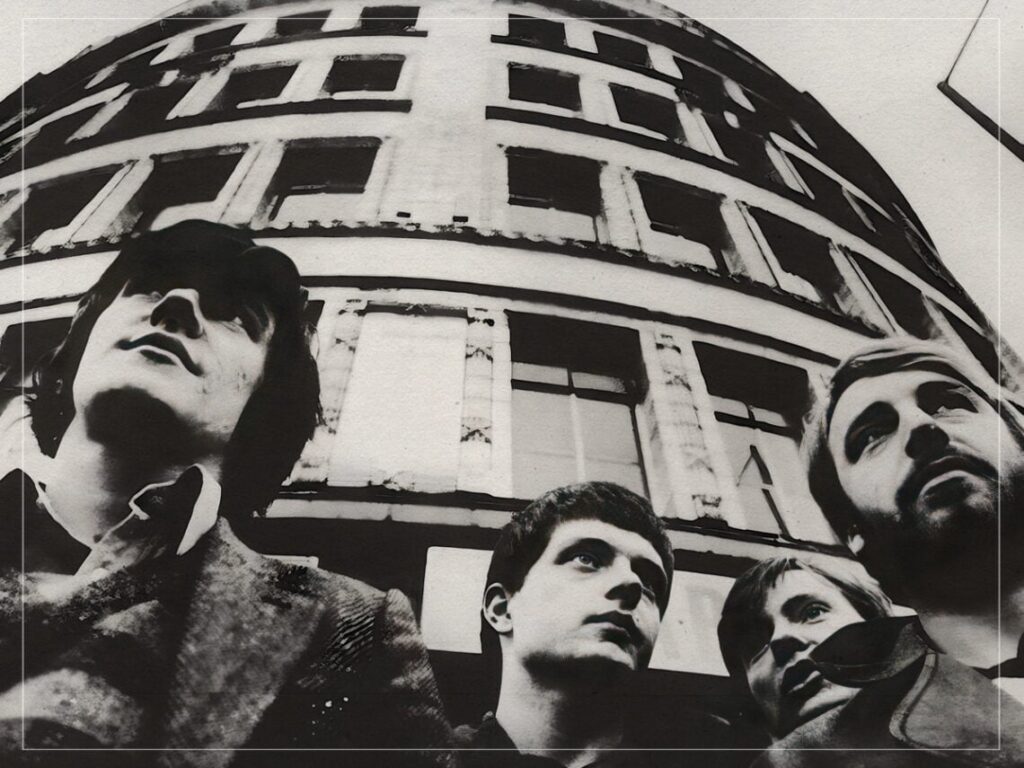Known Pleasures: What was in Ian Curtis’ record collection?
 Posted On
Posted On
(Credits: Far Out / Rhino Entertainment)
There’s an unfortunate but undeniable mythos that shrouds seminal post-punk band Joy Division‘s legacy. The immediate image conjured in mind is one of a group of earnest young bookish types, dressed in utilitarian garb and crafting shadowed pierces of austere minimal punk to illustrate the existential angst of its troubled but enigmatic frontman.
Sadly taking his own life on the eve of an American tour 45 years ago, singer and lyricist Ian Curtis has become frozen in amber in the eyes of his fans, unwittingly passing into cultural lore as an icon of doomed romance.
The mordant fascination with Curtis and his suicide’s inextricable feature being part of the Joy Division story is at odds with the man his band members and friends knew him to be. Something visceral was indeed channelled on stage through his funereal lyricism and possessed dancing, but then, he was also Curtis, the married man and father supporting his family with a respectable civil service job.
He was reportedly hilariously good company, too. Tales of the band’s late-night buffoonery and keen embrace of Rider beer resulted in mass pillow fights in Cardiff hotels and wrecking of bar toilets when playing Guilford, all keenly corraled by their singer who enjoyed a good jape or two.
He was also a dedicated music fan. Since a teen devouring UK and New York glam from David Bowie, Lou Reed, and Iggy Pop, Curtis had established a reputation early on for his impeccable pop taste. The records he accrued across his short life have never been wholly verified and can only be collated from a mixture of conjecture, accounts from his wife, Deborah, and hazarded guesses based on the odd praises he bestowed on artists in interviews.
Curtis was a huge fan of Bowie, enamoured with his Berlin Trilogy’s spooky electronic atmospheres. So much so that Joy Division initially operated under the name Warsaw in honour of Low‘s ‘Warszawa’ instrumental. Bassist Peter Hook credits Curtis with introducing the band to The Doors and Can, and a radio interview exists of Curtis claiming Gary Numan was the “future of music”. Other legends include Curtis reportedly keeping the phone number of his extra-marital lover Annik Honoré in a copy of Siouxsie and the Banshees’ Join Hands, and Deborah claimed Reed’s bleak Berlin rock opera enjoyed heavy rotation in the house.
It’s Düsseldorf’s Kraftwerk who were arguably the most consequential in inspiring the band’s sonic character and sowing the seeds for future successors, New Order. “My earliest memory of Kraftwerk was being given an LP by Ian Curtis,” Hook told NME in 2020. “He gave me Autobahn and then later Trans-Europe Express. I was absolutely mesmerised by both. Ian suggested that every time Joy Division go on stage, we should do so to ‘Trans Europe Express’. We did that from our first show until nearly our last.” Later scoring a massive hit with ‘Blue Monday’, it’s entirely plausible to think the melancholy synthpop single could have been fronted by Curtis, had Joy Division continued into the 1980s.
One LP looms large in the Joy Division story. According to manager and Factory Records founder Tony Wilson, Curtis spent his final hours watching Werner Herzog’s Stroszek and then playing Iggy Pop’s pioneering post-punk project The Idiot in the early hours of May 18th, 1980. Whether a deliberate sign or just a strange happenstance, its title shared with Dostoyevsky’s 19th-century novel featuring an epileptic—a condition that plagued Curtis—prince descending into insanity no doubt has added to the late frontman’s eternal mythology.
[embedded content]
Related Topics


